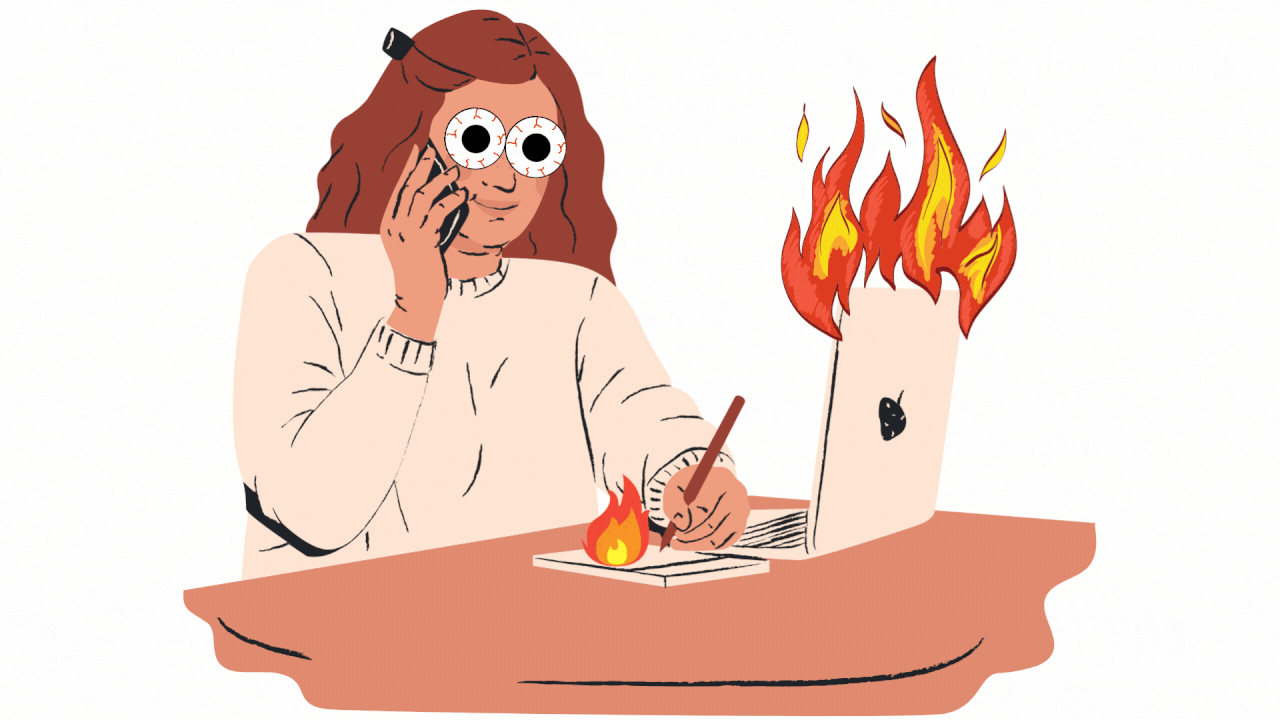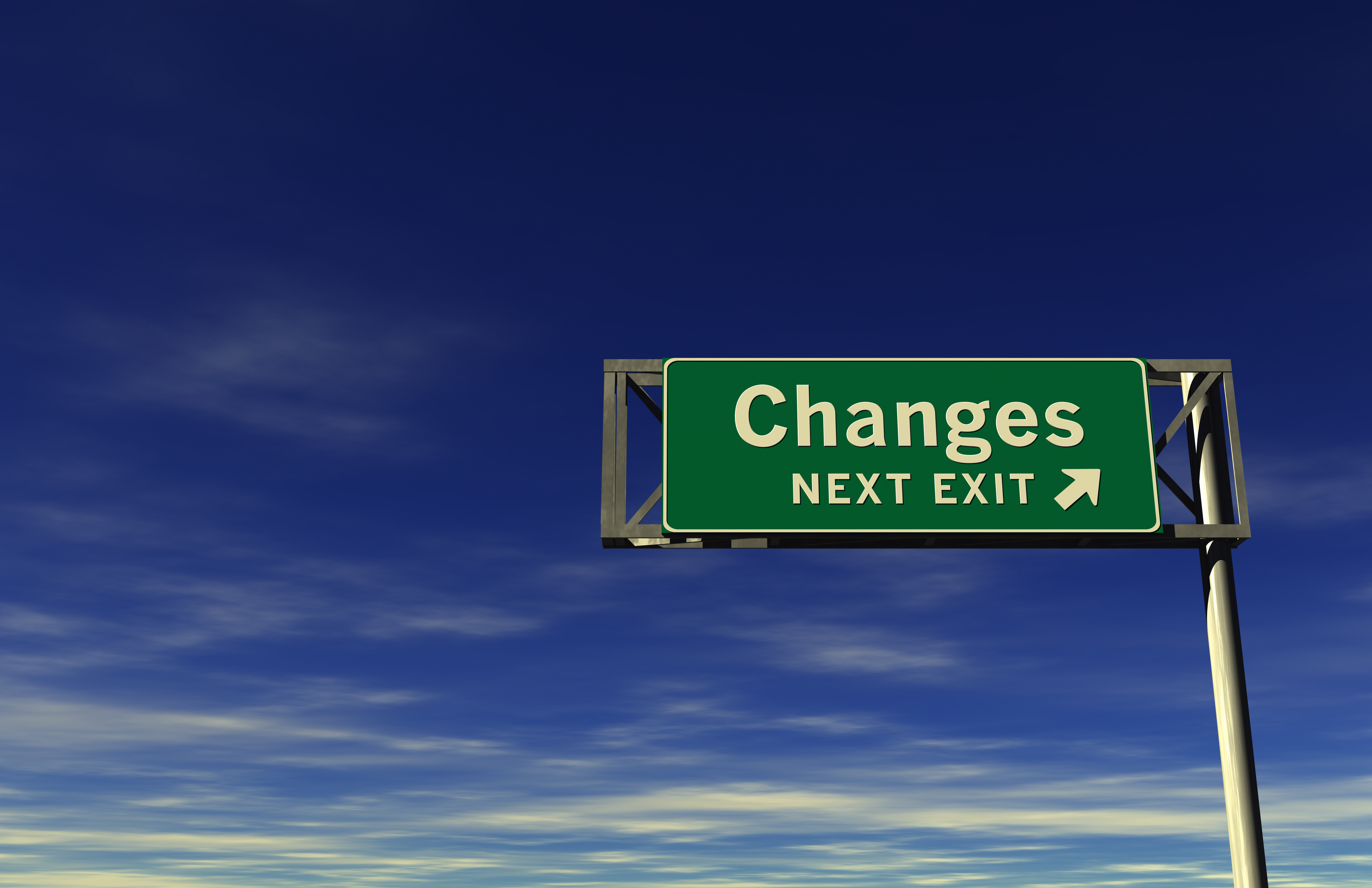3 Energizing Tips For Avoiding Burnout
Oooh, boy, we areTIRED. Exhausted. Over it all, and then some.
3 min read
 John Loos
:
Nov 18, 2022 2:49:13 PM
John Loos
:
Nov 18, 2022 2:49:13 PM

Remember about twelve years ago when every ad read like "I live to rise and grind! Coffee is my wife and we have two kids, Adderall and Empty Stomach! I eat spreadsheets for breakfast and work 19 hour days and sleep under my desk and cry because I'm so happy! I am a DO-ER! Are you?" and then, collectively, humanity realized that sort of grind culture was actually...horrifying? Inhumane? Incredibly stupid?

The pandemic made clear many things, but perhaps no myth was busted harder than the idea that in order to succeed we must live and breathe our jobs. Pretty much the opposite quickly became true: we realized we could effectively do our jobs in less time, with less stress, less micromanagement, and with more self care. In short, we did better work when we were well rested, comfortable, and listening to our energy's natural peaks and valleys throughout the day.
Burnout is no longer the goal or a badge of honor. It's an onerous barrier to effectively doing our jobs and something that employees are actively recoiling against.
Burnout is no longer the goal or a badge of honor. It's an onerous barrier to effectively doing our jobs and something that employees are actively recoiling against. Just look at the video game industry in the last few years. Industry giants like Rockstar, Activision, and Bioware have suffered widespread backlash for their reliance on "crunch," or months-long stretches during video game development where employees are expected to work 80, 90 or 100+ hours a week.
That being said, burnout is still very real. 2022 has been the great "return to normal," and with that has come new headaches of work/life balance, hybrid work, and struggling to keep pace in an accelerating world and increased workloads and demands.
Here are 3 things managers can do to ensure their employees are ending 2022 on a high note and not collapsing at the finish line like a dehydrated triathlete:
Yes, end of year can be a hectic time as projects are finishing up, employees juggle holiday plans and time off, big plans are being laid for the next year, and clients have last-minute asks. Yet, it's also the time of year most marked with false urgency. Everyone, C-suite to loading dock, is half-thinking about Thanksgiving plans or holiday shopping anyway.
Is it really a fire drill, or can it wait? Are there opportunities to let employees take a little extra time with things, or duck out early? As a manager, are you adding extra stress by forcing your team to churn out a project that won't be looked at until early January anyway?
What's really the priority right now, and what's just invented stress?

Let's face it: from now till the end of the year, everyone from C-suite to the loading docks is only going to be half-thinking about their work. Instead, our brains are filled with travel plans, meal planning, holiday shopping, managing our kids' holiday breaks, figuring out when we're going to visit Great Aunt Louella in the nursing home because (and they've said this 12 years in a row) it might be her last year, football, basketball, and of course Mariah Carey Christmas music to download for the 900th time. Work, for almost everyone, drops down a few pegs on the priority list.
Before you check out, make sure to check in with your teams to see what they need and how they're doing. Having an actively interested manager to collaborate and troubleshoot issues with will take away a lot of the stress of tying up end-of-year loose ends.

Remember when Charles Dickens wrote an entire holiday classic about burnout? Scrooge demanded poor Bob Cratchett work tirelessly even through the holidays and it took three whole ghosts and an ex-business partner rattling his zombie chains for Scrooge to realize he'd been a giant asshole. He then delivered a Christmas goose to the Cratchett family and all was forgiven.
Which begs the question: What small perks/rewards/benefits can you give your teams during this season? Maybe order pizza on Fridays! Have a holiday happy hour, virtual or in person! Create fun, low-stakes contests among the team with fun prizes! A little dopamine boost here or there can go a long way to keep spirits bright during these shortened days. We may not be able to avoid or curtail our workload, but at least we can demonstrate empathy and humanity in the face of it. And that will go a long way to keeping burnout at bay.

Oooh, boy, we areTIRED. Exhausted. Over it all, and then some.

Adaptation is something humans are born with. In the wild, it can make the difference between life and death. While the stakes in the workplace may...

Nobody thinks they are spinning a ‘shut up’ culture. We say “Tell me anything!” But then, when people do, it’s never at the right time or what we...